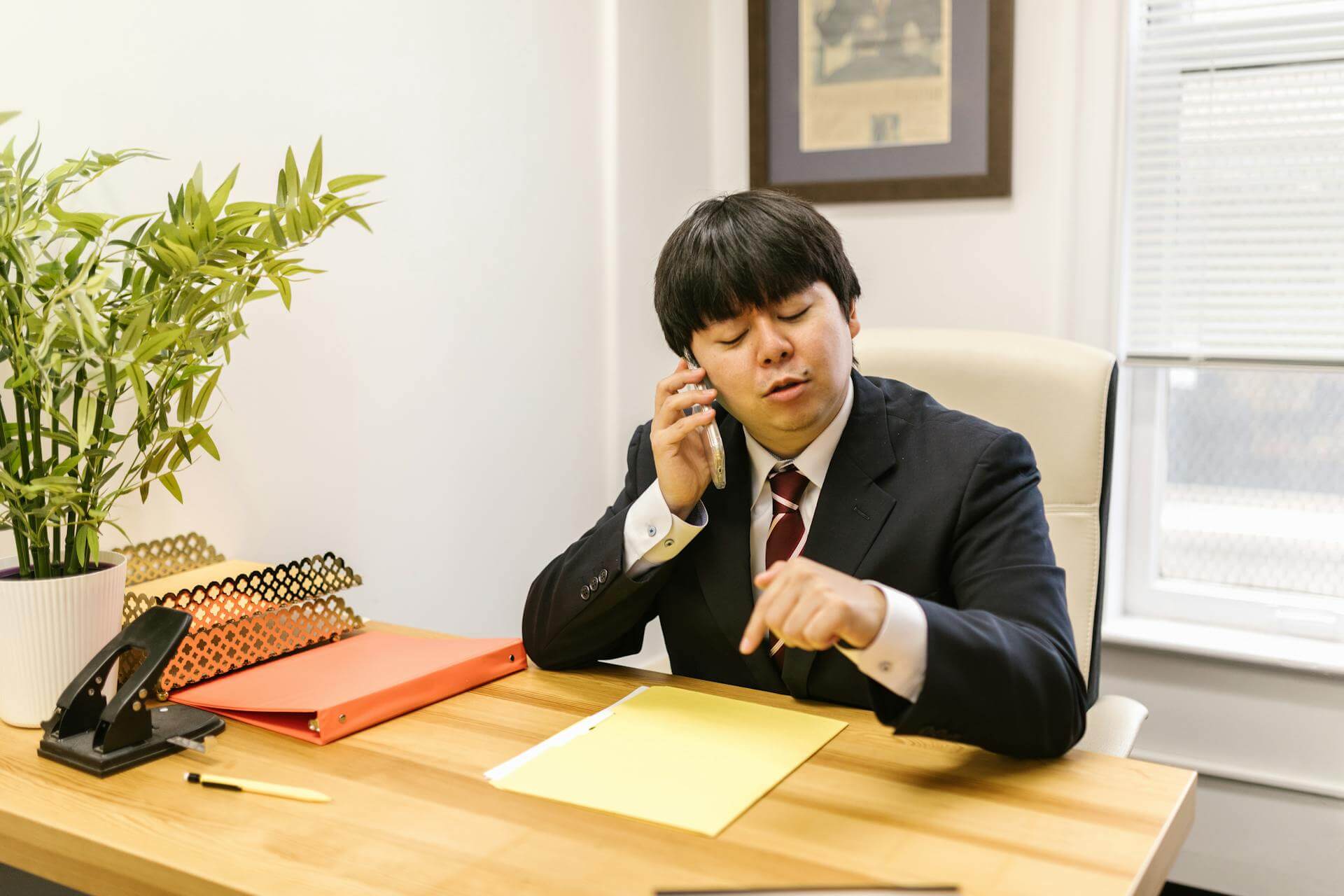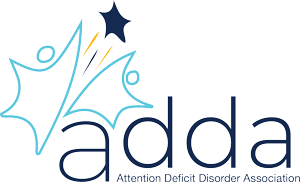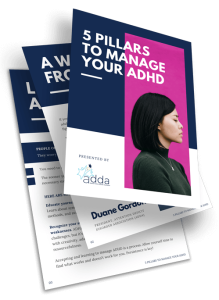
The Ultimate Guide to ADHD Coping Mechanisms: 19 Practical Strategies
Managing ADHD can feel like treading water—some coping strategies keep you moving forward, while others just stop you from sinking. The right ones act like a sturdy raft, steering you toward your goals. The wrong ones? They’re driftwood. They might keep you afloat, but they won’t take you far.
The good news? You don’t have to struggle. Healthy ADHD coping mechanisms are within reach, giving you the tools to make life easier, more manageable, and enjoyable.
That’s the real difference between healthy and unhealthy strategies. The right ones help you thrive, not just survive. Quick fixes might feel good in the moment, but they often lead to stress and burnout.
By swapping short-term crutches for sustainable strategies—and giving yourself some grace along the way—you can create habits that keep you on track and help you reach your goals.
ADHD Coping Strategies for Time Management
Many ADHDers experience time blindness—the inability to track how much time has passed or estimate how long it takes to get something done. If this sounds familiar, don’t worry; there are effective ways to tackle this challenge.
Here are some ADHD coping strategies that can improve your time management.
1. Use Timers and Alarms to Stay on Track
External reminders, such as alarms, timers, and countdown apps, can make the passing of time more visible and tangible.
If you need to complete something in a fixed amount of time, place a timer in front of you so you’re more aware of the time spent on that activity.
Setting a timer transforms abstract time into something tangible you can see and control, which is a big win.
2. The Pomodoro Technique & Time Blocking
The Pomodoro technique involves alternating between working and resting.
Block out a specific time of your day for work. Then, split this session into alternating blocks of focused work and breaks.
With this approach, you might finally experience the sense of flow and accomplishment that has been eluding you. This technique is an excellent tool for anyone learning how to cope with ADHD.
3. Build Buffer Time Into Your Schedule
Time blindness makes it easy to underestimate the time it will take to complete specific tasks.
To counter this, give yourself a little more buffer time. For example, if you think getting ready for an appointment will take 20 minutes, give yourself 30 minutes instead.
Buffer time reduces stress and gives you more room to breathe.

ADHD Coping Strategies for Focus and Attention
Staying focused with ADHD can feel like you’re trying to listen to one specific song while dozens of others play in the background.
Many ADHDers get distracted quickly, but the following coping strategies may help. With patience and persistence, staying focused is possible.
4. Body Doubling for Accountability
If staying on task feels impossible when you’re alone, you’re not failing—body doubling might be just what you need.
Body doubling involves working on a task alongside a family member or friend who acts as a “body double.” Having someone around while you work can add an extra layer of accountability and external motivation. It can also make you feel grounded and capable.
5. Minimize Distractions in Your Environment
Distractions can make it hard to stay productive, and relying on willpower alone isn’t always practical. A better approach is to minimize or eliminate them from the start.
For example, you can set up a quiet workspace away from foot traffic, use noise-canceling earphones, or silence your device notifications while you work. Small changes like these can help you reclaim your focus and confidently move forward.
6. Break Tasks Into Smaller Steps to Reduce Overwhelm
If you struggle with ADHD task paralysis, breaking big tasks into smaller ones can help.
For instance, if the task is to finish writing a report, you can break it down into separate steps, like collecting data, writing the first draft, and editing. This makes the task less overwhelming and shows you that progress is possible, one step at a time.
Breaking tasks into smaller steps is an effective way of dealing with ADHD and overcoming feelings of paralysis.

ADHD Coping Strategies for Organization & Productivity
Being disorganized and forgetful are common symptoms of ADHD. These symptoms may get in the way of your work or academics.
However, you can implement specific ADHD coping skills to help you stay organized, plan better, and boost your productivity. These changes might seem small, but their impact can be life-changing.
7. Create Designated Spaces for Important Items
If you constantly misplace items like your keys, wallet, or work documents, try to designate a specific spot for each one. For example, you can hang a small hook by the door for your keys or use a dedicated folder for important papers.
Make it a habit to put things back in their designated spots so you won’t waste time searching for them. It’s a simple way to bring more order and clarity into your day-to-day life.
8. Use Visual Organization Tools (Planners, Apps, Color Coding)
Visual cues and reminders can help you keep track of important notes or events. You can mark key events on a physical planner or calendar or use color coding to prioritize tasks based on urgency.
You can also try organizational apps like Remember the Milk or Notion. These tools don’t just keep you on track—they let you customize your workflow, gamify tasks, and visualize progress, making organization feel easier—and even fun.
9. Declutter Regularly to Reduce Mental Overload
A cluttered space can lead to increased distractions.
Keep only the items you need for the task or project on your desk, and store other unrelated items in a drawer or cabinet. Storage solutions like trays, file holders, or labeled bins can also help you stay organized.
To maintain a tidy workspace, you can set a daily or weekly reminder for a quick decluttering session. Give yourself credit for each small victory in creating a space that supports your success.

ADHD Coping Strategies for Impulsivity & Emotional Regulation
Research suggests that adults with ADHD are more likely to rely on unhealthy coping mechanisms for managing emotions and stress, such as self-blame or catastrophizing situations.[1]
If you struggle to regulate your emotions, here are healthier coping mechanisms to try instead.
10. The STOP Method for Impulsivity
It feels almost natural to react instantly to strong emotions. While it might be tricky initially, learning how to pause before reacting is key to managing these emotions well.
You can use the STOP method as follows:
- S – Stop: Pause instead of reacting right away.
- T – Take a breath: Slow down and reset.
- O – Observe: Notice your thoughts, emotions, and surroundings.
- P – Proceed mindfully: Respond with intention, and choose your response thoughtfully.
This simple technique can be especially useful in heated conversations or moments of frustration.
11. Self-Imposed Pauses for Decision-Making
Impulsivity in ADHD can lead to snap decisions—whether it’s making an expensive purchase or quitting a job on a whim. While these choices may feel right in the moment, they can often lead to regret.
Try implementing a 24-hour rule before making significant decisions to create a buffer between impulse and action.
Give yourself a full day to sit with the choice, weigh the pros and cons, and see if it still feels right after the initial urge has passed. If the decision makes sense after 24 hours, you can move forward more confidently and clearly.
12. Mindfulness and Breathing Techniques to Manage Emotions
Research has indicated that mindfulness meditation can help adult ADHDers regulate their emotions.[2] By training your awareness to stay in the present moment, mindfulness reduces emotional reactivity and helps you respond more intentionally rather than impulsively.
In addition to mindfulness, breathing exercises can quickly and effectively release tension and stress. Simple techniques like box breathing or the 4-7-8 method can calm your nervous system, making it easier to regain focus and control in overwhelming moments.

ADHD-Friendly Habits & Lifestyle Adjustments
Your lifestyle can also affect your symptoms. By pulling the right levers, you can modify your lifestyle habits to give yourself the upper hand when it comes to managing your ADHD symptoms.
13. Exercise to Regulate Dopamine & Focus
Research suggests physical exercise can improve thinking, reduce fatigue and anxious thoughts, and decrease impulsivity.[3] Regular movement helps regulate dopamine levels, which play a crucial role in focus and motivation for people with ADHD.
The key to making exercise a habit is to find a type of movement you genuinely enjoy. Whether it’s dancing, hiking, yoga, or martial arts, choosing an activity that feels fun rather than like a chore increases the chances of sticking with it long-term.
14. Sleep Hygiene Tips for ADHD
Sleep problems are common in adult ADHDers, and poor sleep can make it harder to focus, remember details, and regulate your impulses or emotions.[4]
Here’s how you can start getting better sleep at night:
- Stick to a consistent sleep schedule
- Create a calming bedtime routine by doing things that help you relax
- Create a comfortable bedroom environment by keeping it dark, cool, and quiet
- Avoid screens for at least an hour before bedtime
- Avoid caffeine or having large meals close to bedtime
If your sleep issues persist despite good sleep hygiene, it’s best to seek the help of a medical professional.
15. Nutrition Strategies for Better Overall Health and Functioning
There are no strict dietary rules for ADHD, but a well-balanced diet provides the fuel your brain needs to function at its best. Nutrient-rich foods can help support focus, energy levels, and overall mental clarity.
If you’re looking for specific brain-boosting nutrients, consider adding more omega-3 fatty acids to your meals. Found in foods like salmon, flaxseeds, and walnuts, omega-3s may support brain health, enhance learning, and improve memory.[5]
Making small, intentional dietary choices can have a lasting impact on cognitive function and overall well-being.

How to Build a Personalized ADHD Coping Toolbox
Building your own personalized ADHD toolbox comes down to trial and error. Certain apps, programs, or systems may work wonders for others but do nothing for you—and vice versa. The key is to find sustainable strategies that fit your working style.
16. Try ADHD-Friendly Productivity Apps
Technology can be a powerful ally in managing ADHD. Some apps and programs that may be useful for ADHD include:
- Calendar apps & digital reminders: Keep track of important dates, deadlines, and events.
- To-do list apps: Apps like Remember the Milk can help you organize tasks and set reminders to stay on top of responsibilities.
- Time management apps: Digital Pomodoro timers can help you break work into manageable chunks.
- Productivity apps: Apps like Forest can help you stay focused and minimize distractions.
- Habit-tracking apps: Habitica is one example of an app that allows you to gamify habit-building to stay motivated and consistent.
17. Create a “Brain Dump” System for Random Thoughts
The ADHD brain is great at coming up with creative ideas, but one thought may quickly lead to another and pull you down a rabbit hole of distractions.
A “brain dump” helps you capture these thoughts before they derail your focus. You can quickly note them in a physical or digital notebook or a voice memo.
That way, you can revisit and organize these thoughts later. This helps you stay focused on your current task while ensuring you don’t forget anything important.

When to Seek Professional Support
If you’re struggling to find coping strategies that work for you, reaching out to a trained professional or a supportive community can make all the difference. Personalized guidance can help you navigate challenges more effectively and build strategies tailored to your needs.
Asking for help isn’t a sign of failure—it’s a proactive step toward success, giving you the tools and support to manage ADHD confidently.
18. ADHD Coaching
ADHD coaches work with adults to develop personalized strategies for managing daily challenges and building essential life skills. Their support goes beyond general advice, offering practical tools tailored to your unique strengths and struggles.
With a coach’s guidance, you can create systems that improve time management, organization, and emotional regulation. This will help you stay on track and achieve your goals with more confidence.
19. Support Groups & ADHD Communities
Sometimes, the best advice comes from those who’ve been in your shoes. Connecting with others who understand ADHD firsthand can provide invaluable support, encouragement, and practical solutions.
Joining ADHD support groups—in-person or online—allows you to learn tried-and-true strategies from fellow ADHDers. These communities offer a judgment-free space to share experiences, gain insights, and feel less alone in your journey.
There’s No One-Size-Fits-All ADHD Toolbox
Learning to thrive with ADHD is a journey, and finding the right tools and coping strategies takes time, persistence, and a bit of trial and error. But with the right resources, you can navigate challenges more effectively and harness your strengths to their fullest.
If you’re looking for expert guidance and a supportive community to help you along the way, ADDA+ has you covered. This online platform offers expert-crafted courses, practical tools, and a space where adult ADHDers can share real-life strategies to achieve their biggest goals.
References
[1] Soler-Gutiérrez, A. M., Pérez-González, J. C., & Mayas, J. (2023). Evidence of emotion dysregulation as a core symptom of adult ADHD: A systematic review. PloS one, 18(1), e0280131. https://doi.org/10.1371/journal.pone.0280131
[2] Kretschmer, C. R., Göz Tebrizcik, B., & Dommett, E. J. (2022). Mindfulness Interventions for Attention Deficit Hyperactivity Disorder: A Systematic Review and Meta-Analysis. Psychiatry International, 3(4), 363–399. https://doi.org/10.3390/psychiatryint3040031
[3] Tucker, R. L., Williams, C., & Reed, P. (2024). Breaking Down Barriers: Understanding Determinants of Exercise in Adults with ADHD Symptoms. Journal of Developmental and Physical Disabilities.https://doi.org/10.1007/s10882-024-09994-0
[4] Surman, C. B. H., & Walsh, D. M. (2021). Managing Sleep in Adults with ADHD: From Science to Pragmatic Approaches. Brain Sciences, 11(10), 1361. https://doi.org/10.3390/brainsci11101361
[5] Dighriri, I. M., Alsubaie, A. M., Hakami, F. M., Hamithi, D. M., Alshekh, M. M., Khobrani, F. A., Dalak, F. E., Hakami, A. A., Alsueaadi, E. H., Alsaawi, L. S., Alshammari, S. F., Alqahtani, A. S., Alawi, I. A., Aljuaid, A. A., & Tawhari, M. Q. (2022). Effects of Omega-3 Polyunsaturated Fatty Acids on Brain Functions: A Systematic Review. Cureus, 14(10), e30091. https://doi.org/10.7759/cureus.30091






4 Comments
This list is great, if you can approach it with a “meta” mindset. I’m almost 50 (diagnosed in the 80s before it was called ADHD; just medically hyperactive) and I’ve been doing many of these for decades. The first strategy I ever learned was a prioritized list. In my early 20s, my boss who did not know I had ADHD (and honestly at the time I thought it was something only children had) gave it to me to help me keep my job. It worked like a charm. And I’ve been stumbling upon many of these organically. What generally happens is I realistic some disorganized aspect of my life is unsustainable toward my general happiness and contentment. Then I sit down and think myself through what could I do to fix that ONE aspect. And that’s all I focus on regarding my ADHD. Learned strategies are still in place and are routine, so don’t need my immediate focus. And I don’t try to do some major overhaul, because I’ve learn (of course) that never works.
I actually came to this article for my son, who also has ADHD, but his is worse. I have learned that my telling him what works for me is usually met with objections that I can not overcome (probably simply because I am his mother). So lists like these 1. help him see that he’s not alone and 2. give him hope with yet untried strategies. Even if he only picks up one, his life is that much less difficult, and every little bit helps.
Many of these are not possible for somebody with adhd. We’re constantly told to use reminders or calendars, but the thing is they never work. Otherwise we wouldn’t be searching for articles like this to give us strategies.
You think I like having my desk cluttered all the time? The only way I can declutter is by permanently clearing my desk of everything completely and somehow I still manage to create mess from what’s left. We’ll always find something to fidget with even if we’re alone in our room with headphones on because we can’t go without anything at all.
We lose things when we move them from their designated spot because we don’t remember to put them back. We don’t have the executive functioning skills to complete tasks, so everything is constantly unfinished and in a state of incomplete. Taking my keys off the hook to go out is all well and good, but will I remember to put them back on the hook when I come home exhausted? They’ll probably have gotten lost in my handbag or pocket.
It’s clear this article wasn’t written by somebody with adhd, just someone who studies it.
the article itself is overwhelming for me and I’ve already forgotten 90% of what was written
Hi Priya,
Ya, I hear you, it is a lot of information! What I usually find helpful when I want to take action is to take whatever feels good to try at the time, like 1-3 ideas, and implement them.
For this particular article, I listened to it twice on my Text To Speech app. I soaked in the information and felt validated by what I’ve already been doing. It acted like a pat on the back to keep going – which helps to boost my mood. Even though I’m not going to try anything new at this point, as that would feel overwhelming and not helpful. I hope sharing my perspective is helpful!